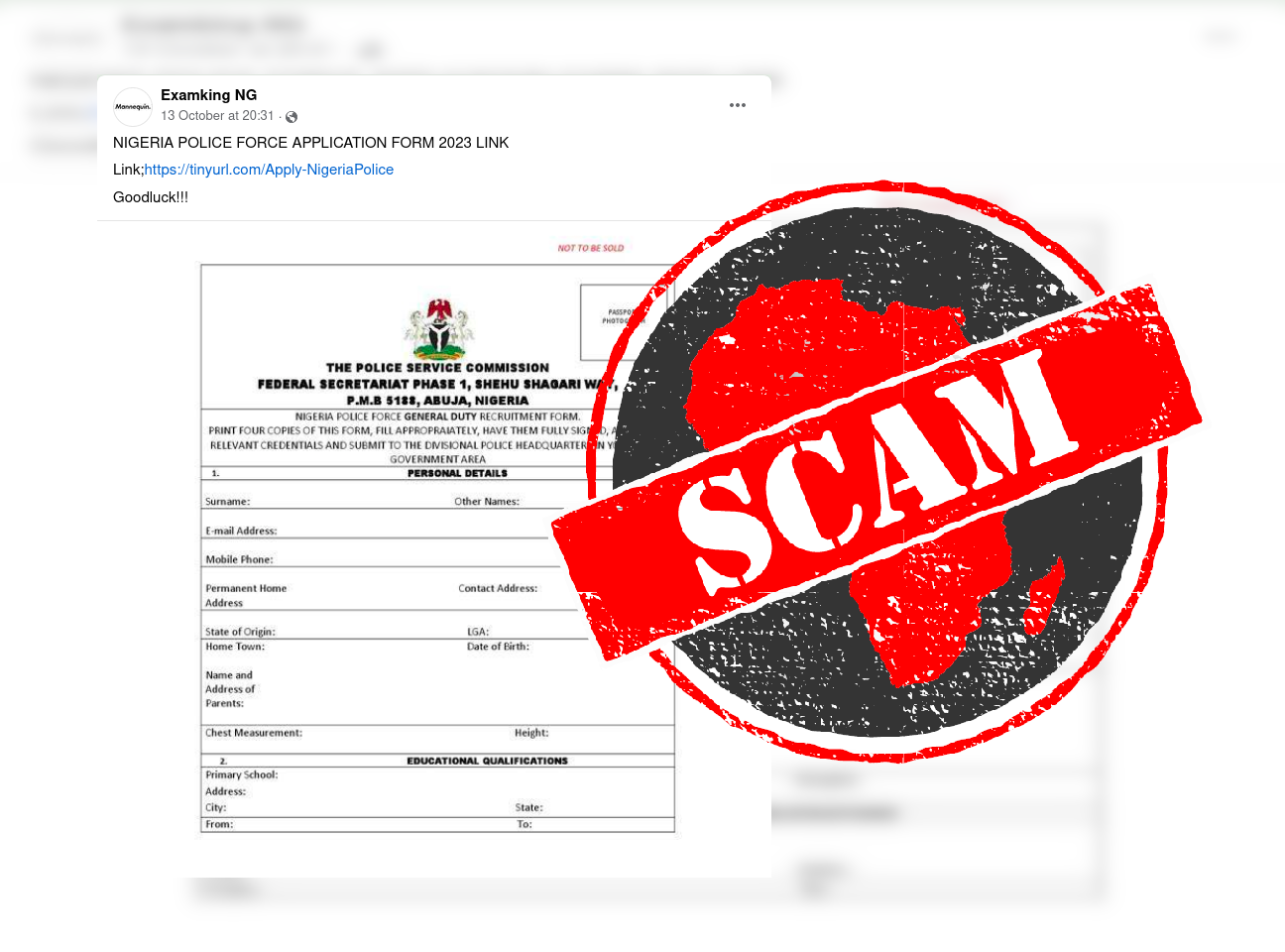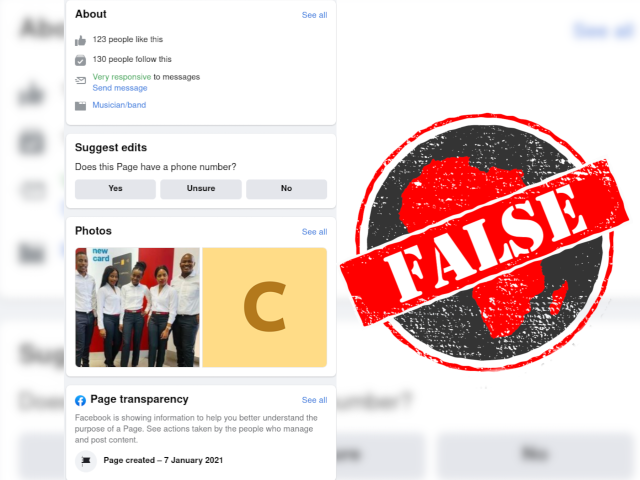IN SHORT: The Nigeria Police Force’s recruitment drive is set to close on 26 November 2023. But a link and form circulating on Facebook are not legit. Prospective applicants should follow the police’s official website and social media accounts for details on the recruitment process.
“NIGERIA POLICE FORCE APPLICATION FORM 2023 LINK. Link; (https://tinyurl.com/Apply-NigeriaPolice),” reads a Facebook post.
Attached to the post is an image of what appears to be an application form that carries Nigeria's coat of arms.
We found similar claims here, here, here and here. Despite little engagement, some of the posts have been shared in groups with thousands of members.
But is the link provided in the posts legit? We checked.

Scam application forms may steal personal information
We clicked on the link and it led us to a suspicious-looking website, which required us to fill in our details such as name, gender and country of residence.
After entering this information, we were directed to a second page, which said: “Your Application for the ongoing NIGERIA POLICE FORCE APPLICATION. Is now on process. Kindly Validate Your Name to proceed to the next step. Note! The Number Of Applicant is limited.”
This page also featured what looked like a Facebook post, with over 160,000 likes, more than 30,000 shares and comments, mostly from users claiming their applications had been approved.
The third page of the bogus application form congratulated us and instructed us to share the link with five groups or 15 friends on WhatsApp. However, we were allowed to proceed without sharing the link on WhatsApp, which raised our suspicions even higher.
The last page popped up a “Print Now” button, seemingly to get our application form printed. When we clicked on it, it led only to a URL shortening service, which appeared to have nothing to do with the force’s recruitment.
This tactic is known as engagement bait. These are posts that require users to comment, share and like. The more people do this, the more the posts spread and traffic to a website increases. Engagement bait posts can spread content that is sensational or misleading.
‘Verify the authenticity of any portal or recruitment information,’ warns police
We checked the Nigeria Police Force’s official website and Facebook page, and found no recruitment form or link similar to the ones attached to the suspicious posts.
According to news website Punch, the force’s online recruitment is from 15 October to 26 November 2023.
In October, the police took to X, the social media platform formerly known as Twitter, to warn the public about fraudulent recruitment websites.
“We strongly advise all prospective applicants to exercise due diligence and verify the authenticity of any portal or recruitment information before taking any action. Do not be deceived by fraudulent activities. Your safety and security are of paramount importance to us,” the police wrote.
It also urged prospective applicants to head to policerecruitment.gov.ng to submit their applications.
To further protect yourself against online scams, read our guide here.
Republish our content for free
For publishers: what to do if your post is rated false
A fact-checker has rated your Facebook or Instagram post as “false”, “altered”, “partly false” or “missing context”. This could have serious consequences. What do you do?
Click on our guide for the steps you should follow.
Publishers guideAfrica Check teams up with Facebook
Africa Check is a partner in Meta's third-party fact-checking programme to help stop the spread of false information on social media.
The content we rate as “false” will be downgraded on Facebook and Instagram. This means fewer people will see it.
You can also help identify false information on Facebook. This guide explains how.





Add new comment